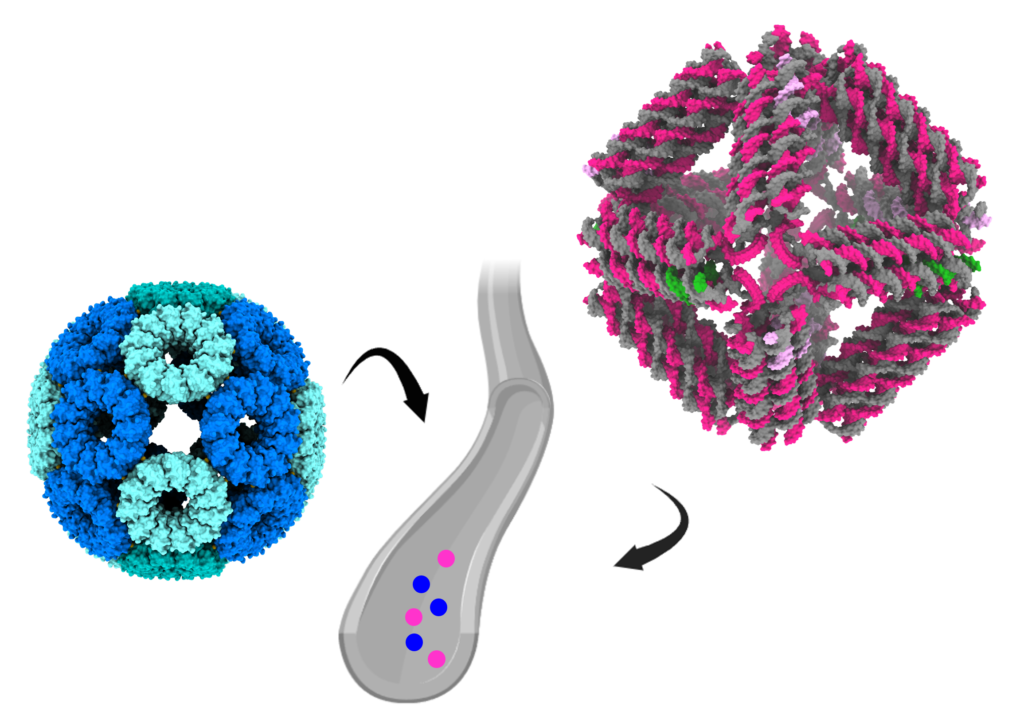NCN OPUS LAP Project
Our OPUS LAP project, effect of nanoscale, three-dimensional arrangement of proteins on biological and Therapeutic activity (FIT) is made possible thanks to funding from NCN, the National Science Centre, Poland.
Background
Artificial nanosized cages made from biological molecules have a great deal of promise in a wide range of applications notably in vaccines, where they can present multiple copies of antigens on their exterior, and in drug delivery systems where potentially toxic drugs can be placed in their hollow interiors.
For DDS applications, the exterior can also be used as a surface on which to place targeting agents. Questions then arise as to the optimal density and spacing of these agents. This in turn is affected by the properties of the cage such as size and geometry.
Our Objectives
In this project we are using a variety of designed, artificial cages made from biological molecules to probe the effects of arrangement and spacing on the activity of the attached molecules. We use a range of cell-based biochemical and biophysical techniques to build and understand our cages. We hope that our work will help with future development of effective and programmable drug delivery systems and vaccines.
Collaborators
We work closely with the laboratory of Prof. Ario de Marco at the University of Nova Gorica, Slovenia who provides us with particular molecules for attachment to our cages
Results
We are in the early stages of our work. And hope to generate results for publication in due course.




